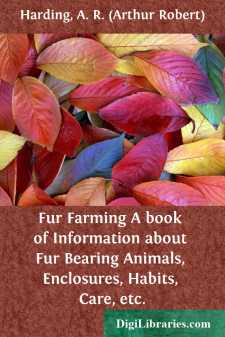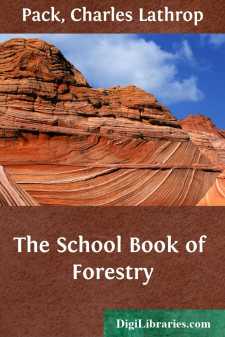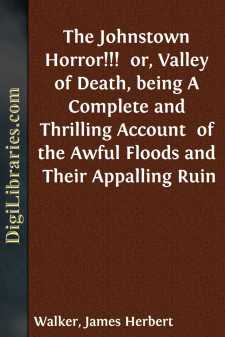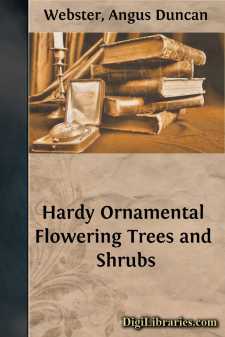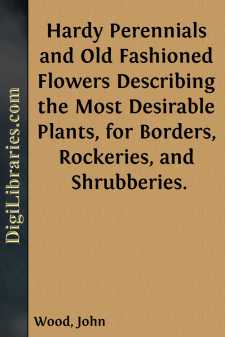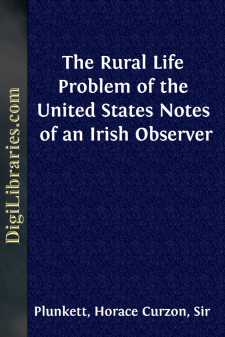Nature
Nature Books
Sort by:
CHAPTER 1. SUPPLY AND DEMAND. For years there has been a belief that the supply of fur-bearing animals would soon be inadequate to the demand. This belief is well founded and is apparent when the fact is known that the natural haunts and homes of the fur-producing animals are becoming less each year. The draining of swamps and marshes is destroying the homes and breeding places of muskrat and to a...
more...
CHAPTER I HOW TREES GROW AND MULTIPLY The trees of the forest grow by forming new layers of wood directly under the bark. Trees are held upright in the soil by means of roots which reach to a depth of many feet where the soil is loose and porous. These roots are the supports of the tree. They hold it rigidly in position. They also supply the tree with food. Through delicate hairs on the roots, they...
more...
by:
Jacob Abbott
CHAPTER I. THE MOUTH OF THE KENNEBEC. One summer, Forester and Marco Paul formed a plan for going to Quebec. Marco was very much interested in going to Quebec, as he wanted to see the fortifications. Forester had told him that Quebec was a strongly-fortified city, being a military post of great importance, belonging to the British government. Marco was very much pleased at the idea of seeing the...
more...
CHAPTER I. The Appalling News. On the advent of Summer, June 1st, the country was horror-stricken by the announcement that a terrible calamity had overtaken the inhabitants of Johnstown, and the neighboring villages. Instantly the whole land was stirred by the startling news of this great disaster. Its appalling magnitude, its dreadful suddenness, its scenes of terror and agony, the fate of thousands...
more...
HARDY ORNAMENTALFLOWERING TREES & SHRUBS. ABELIA. ABELIA CHINENSIS (syn A. rupestris).—The Rock Abelia China, 1844. This is a neat, twiggy shrub, growing from 2 ft. to 3 ft. high, with slender shoots, and very pleasing, shining green serrated leaves. The tubular, sweet-scented flowers are produced in clusters at the ends of the shoots, even the smallest, and are of a very delicate shade of...
more...
by:
John Wood
PREFACE. At the present time there is a growing desire to patronise perennial plants, more especially the many and beautiful varieties known as "old-fashioned flowers." Not only do they deserve to be cultivated on their individual merits, but for other very important reasons; they afford great variety of form, foliage, and flower, and compared with annual and tender plants, they are found to...
more...
CHAPTER I THE SUBJECT AND THE POINT OF VIEW I submit in the following pages a proposition and a proposal—a distinction which an old-country writer of English may, perhaps, be permitted to preserve. The proposition is that, in the United States, as in other English-speaking communities, the city has been developed to the neglect of the country. I shall not have to labour the argument, as nobody...
more...
I wish to speak a word for Nature, for absolute freedom and wildness, as contrasted with a freedom and culture merely civilвÐâto regard man as an inhabitant, or a part and parcel of Nature, rather than a member of society. I wish to make an extreme statement, if so I may make an emphatic one, for there are enough champions of civilization: the minister and the school committee and every one...
more...
INTRODUCTION Does the fact that a weak mortal sought an unprofaned sanctuary—an island removed from the haunts of men—and there dwelt in tranquillity, happiness and security, represent any just occasion for the relation of his experiences—experiences necessarily out of the common? To this proposition it will be for these pages to find answer. Few men of their own free will seek seclusion, for...
more...
by:
Anonymous
THE HARE. I suppose you have all seen a Hare, and perhaps many of you have helped to eat one. The Hare is a very timid animal, running away on the least alarm; but, poor fellow, he is too often caught by the dogs and killed, notwithstanding his swift running. It is rather difficult to tame Hares, but there is a very amusing account of three, named Puss, Tiney, and Bess, written by the poet Cowper, who...
more...


